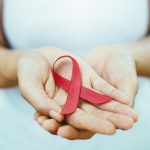
Key facts
- Children need to drink water throughout the day, to help maintain their body temperature, make bodily fluids and for day-to-day functioning.
- Young children and babies are at highest risk of becoming dehydrated.
- If your child is very thirsty, they are probably already dehydrated.
- Mild dehydration can be treated at home by giving oral rehydration fluids or water. Do not give drinks that are high in sugar.

Why do children need to stay hydrated?
Most of your child’s body is made up of water. Water helps maintain body temperature, make bodily fluids and function day-to-day. Dehydration can cause poor sports performance, tiredness, headaches and crankiness and it can lead to serious medical problems.
The body needs to have enough fluid to be able to function at its best. Children are at risk of dehydration, especially in hot weather, but it can happen at any time of the year, including winter, and especially when they are exercising. By the time they feel thirsty, they are probably already — so it’s up to parents and carers to make sure they are drinking enough water.
What causes dehydration?
Children are more likely to become dehydrated:
- after lots of physical activity or exercise
- with severe vomiting or diarrhoea, or if they have a fever
- if they take certain medications, such as diuretics
- if they don’t drink enough, especially during times of illness
- if they are younger than six months of age
- in hot weather
What and how much should my child drink?
Water is the best drink for children. Avoid sports drinks, fruit juices, soft drinks and flavoured mineral waters since they all contain sugar and are acidic, which can lead to tooth decay.
The recommended daily intake of water for children is:
- 4 to 8 years old: 5 cups
- 9 to 13 years old: 5 to 6 cups
- 14 to 18 years old: 6 to 8 cups
Children need extra water when they are exercising or in hot climates. Remember that children need to drink whatever the weather, even in the winter. Encourage your child to drink before, during and after physical activity even if they aren’t thirsty, as this can help prevent dehydration.
Tips to help your child stay hydrated
- Make sure they always pack a water bottle.
- Remind them to drink before a sports game, and encourage them to have a few mouthfuls of water during any breaks in the game.
- Make sure they have a big drink afterwards to make up for any sweat they have lost.
- Keep a jug of fresh tap water within reach, and on warm days, keep the jug of water in the fridge.
- Send a labelled, clear water bottle to the school each day.
- Pack a water bottle when heading out to the shops or the park, but choose water rather than sugary drinks or juice.
- Make sure that adults role-model by drinking plenty of water too.
Signs and symptoms of mild dehydration
Your child may have mild dehydration if:
- they feel thirsty (feeling thirsty is a sign your child is already dehydrated)
- they feel dizzy or lightheaded
- they are nauseous
- they have a headache
- their urine is dark yellow or brown
- they have a dry tongue, mouth, throat or lips
- they aren’t going to the toilet as often or not passing much urine
Signs and symptoms of severe dehydration
You should see a doctor or take your child to the hospital emergency department if they show signs of serious dehydration, including if:
- they feel extremely thirsty
- they are lethargic or less active than usual, or if they are confused or drowsy
- they have become pale, or their feet or hands are cold
- they are breathing rapidly or their heart rate is fast
- their eyes are dark and sunken
Dehydration treatment
If your child is dehydrated, is , the best treatment is to give your child more fluid to drink, such as water or oral rehydration solutions (Gastrolyte, HYDRAlyte, Pedialyte and Repalyte). You can purchase these from your local pharmacy or supermarket.
Do not give drinks that are high in sugar (such as flat lemonade or sports drinks), because they can make dehydration worse.
Babies and young children are more at risk of severe dehydration. If you are breastfeeding your baby, offer feeds more often than usual. If your baby is older than 6 months and bottle fed, replace formula feeds with oral rehydration solution or water for the first 12 hours, then give normal formula small, but more frequent amounts.



